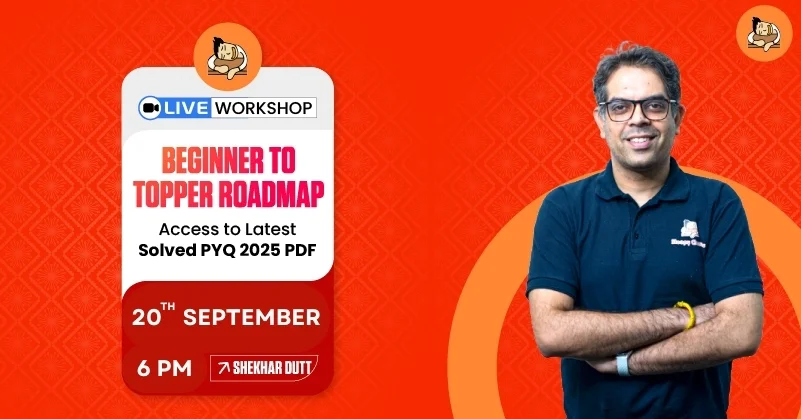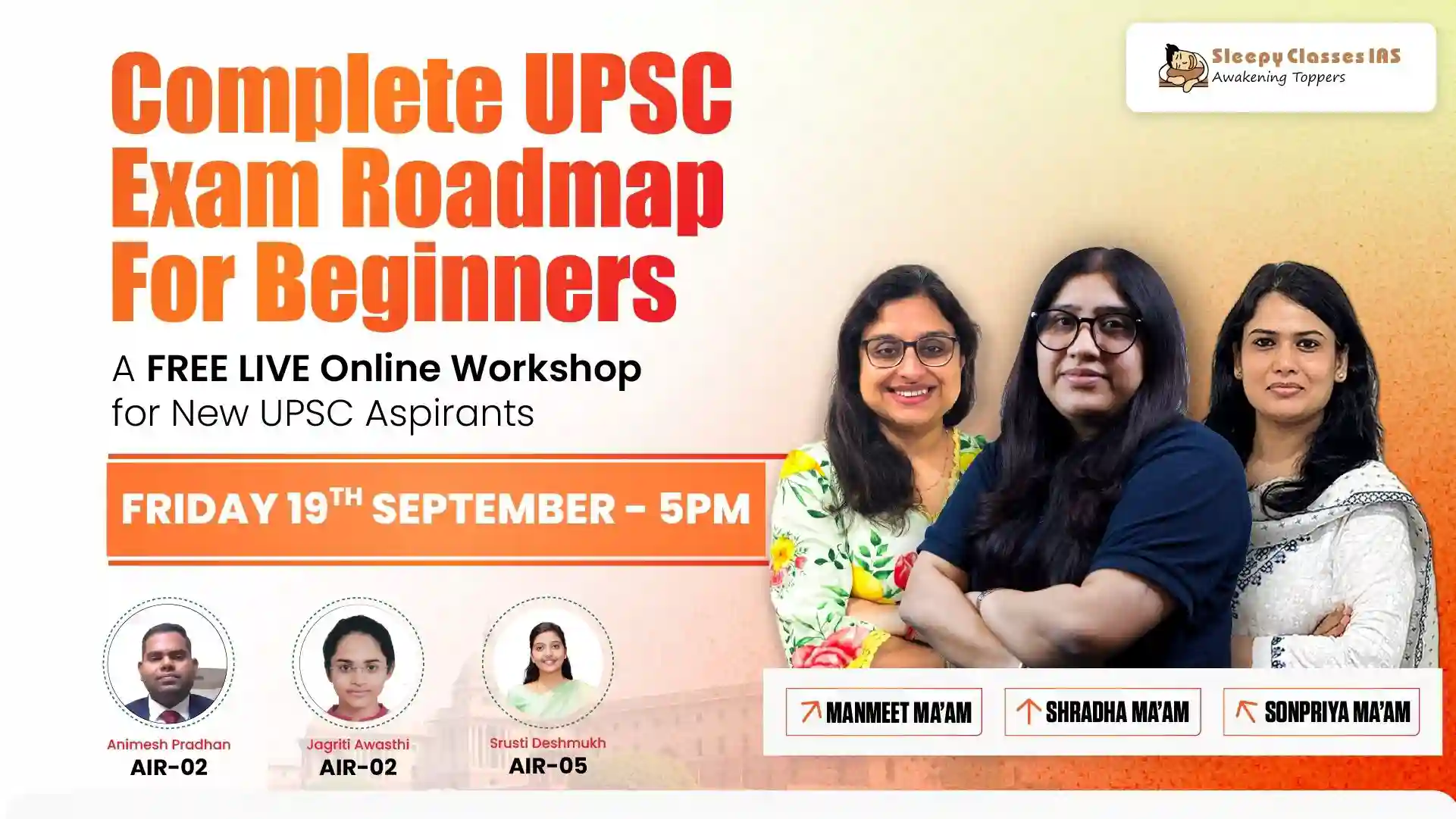The UPSC examination is one of the most challenging competitive exams in India, requiring a deep understanding of a wide range of subjects. Traditional study methods, while effective, can sometimes be monotonous and overwhelming. Leveraging documentaries and films can offer a refreshing and insightful way to grasp complex topics, making your preparation more engaging and effective. This article explores how visual learning techniques, through documentaries and films, can be integrated into your UPSC study plan to enhance retention, understanding, and overall performance.
Key Takeaways
- Visual learning through documentaries and films can make UPSC preparation more engaging and less monotonous.
- Documentaries offer in-depth insights into historical, environmental, and political topics, enhancing retention and understanding.
- Films on social issues, governance, and international relations can provide practical perspectives that are relevant to UPSC exam topics.
- Effective note-taking, discussion, and connecting visual content with the syllabus are crucial techniques for maximizing the benefits of visual learning.
- Balancing visual learning with traditional study methods ensures a comprehensive and well-rounded UPSC preparation strategy.
Understanding the Role of Visual Learning in UPSC Preparation
Benefits of Visual Learning
Visual learning can be a game-changer for UPSC aspirants. Visual aids like documentaries and films make complex topics easier to understand and remember. They provide a break from traditional study methods, making learning more engaging and less monotonous. This approach can be particularly beneficial for visual learners who grasp information better through images and videos.
How Documentaries Enhance Retention
Documentaries offer a rich source of information that can enhance retention. They present facts and narratives in a compelling way, making it easier to recall information during exams. For instance, a documentary on historical events can provide a vivid visual representation that sticks in the mind longer than text-based study materials.
Integrating Films into Study Plans
Incorporating films into your study plan can provide a well-rounded understanding of various subjects. Films on social issues, governance, and international relations can offer new perspectives and insights. To make the most of this technique, it’s essential to select films that align with the UPSC syllabus and use them as supplementary material to reinforce traditional study methods.
Preparing for the UPSC exam requires not only hard work but also strategic revision techniques to ensure maximum retention of information.
Top Documentaries for UPSC Aspirants
Historical Documentaries
Historical documentaries provide a deep dive into significant events and eras, offering a visual representation that can enhance understanding and retention. Mandate With Destiny by Vir Singhavi is a notable example, detailing the story of elections in India. Another must-watch is Planet Earth, a BBC documentary that explores the Earth’s natural events, both past and present.
Environmental Documentaries
Environmental documentaries are crucial for understanding the complexities of ecological issues and their global impact. “India Is Curable” by Umesh Agarwal is a compelling film that addresses the challenges faced by India’s healthcare system. These documentaries not only inform but also inspire action towards sustainable living.
Political Documentaries
Political documentaries offer insights into governance, policy-making, and international relations. They are invaluable for UPSC aspirants aiming to grasp the intricacies of political systems and their impact on society. “MH370: The Plane That Disappeared” and “Turning Point: 9/11 and the War on Terror” are excellent choices that provide a comprehensive understanding of significant political events and their aftermath.
Watching these documentaries can significantly enhance your preparation by providing a well-rounded perspective on various topics covered in the UPSC syllabus.
Analyzing Films for UPSC Exam Topics
Films can be a powerful tool for UPSC preparation, offering insights into various subjects in an engaging manner. By watching films related to UPSC topics, aspirants can gain a deeper understanding of complex issues and enhance their retention of information. Here, we explore how films can be analyzed for different UPSC exam topics.
Films on Social Issues
Films addressing social issues provide a nuanced view of societal challenges and reforms. They can help aspirants understand the intricacies of topics like poverty, gender equality, and education. For instance, movies like Swades and Taare Zameen Par delve into the intricacies of these art forms, offering a gateway to understanding social dynamics.
Films on Governance and Policy
Movies that focus on governance and policy-making offer a practical perspective on administrative functions and political scenarios. Films such as Sarkar and A Wednesday illustrate the complexities of governance and the impact of policy decisions on the public. These films can be particularly useful for understanding the practical applications of theoretical concepts.
Films on International Relations
International relations is a critical area for UPSC aspirants. Films like The Post and Munich provide insights into global politics, diplomacy, and international conflicts. By analyzing these films, aspirants can better grasp the nuances of international relations and the factors influencing global events.
Visual learning through films can significantly enhance an aspirant’s understanding of UPSC topics, making complex subjects more accessible and engaging.
Techniques to Effectively Use Documentaries and Films
Note-Taking Strategies
When watching documentaries and films, it’s crucial to develop effective note-taking strategies. Jot down key points and important dates as you watch. This will help you remember significant details and make it easier to review later. Use bullet points to organize your notes, and highlight any relevant information that directly ties into the UPSC syllabus.
Discussion and Analysis
Engage in discussions with peers or mentors after watching a documentary or film. This can help you gain different perspectives and deepen your understanding of the subject matter. Analyzing the content critically will also enhance your ability to form well-rounded answers in the exam.
Connecting Visual Content with Syllabus
To make the most out of visual learning, always connect the content of documentaries and films with the UPSC syllabus. Create a table that maps out how each documentary or film relates to specific topics in the syllabus. This will not only help in better retention but also ensure that you are covering all necessary areas.
Visual learning can significantly enhance your preparation by providing real-world examples and making complex topics more understandable.
Expert Recommendations for Visual Learning Resources
Curated List of Must-Watch Documentaries
For UPSC aspirants, documentaries can be extremely beneficial. They provide authentic, visual examples that can help make learning more engaging. Here are some must-watch documentaries:
- “The Story of India” – A comprehensive look at India’s history.
- “Planet Earth” – Offers insights into environmental issues.
- “The Fog of War” – Explores political and military strategies.
Recommended Films by Subject Experts
Films can also play a crucial role in UPSC preparation. Subject experts often recommend the following films:
- “Gandhi” – A deep dive into India’s independence movement.
- “Erin Brockovich” – Highlights social issues and environmental activism.
- “The Post” – Focuses on governance and policy.
Platforms for Accessing Quality Content
Accessing quality visual content is essential for effective learning. Here are some platforms where you can find valuable documentaries and films:
- YouTube – Numerous educational channels and documentaries.
- Netflix – Offers a range of documentaries on various subjects.
- Amazon Prime – Features films and documentaries relevant to UPSC topics.
First, don’t depress because you have so much time for preparation. UPSC wants your time and full dedication. If you can give, you can easily crack UPSC.
Case Studies: Success Stories of Visual Learning in UPSC
Aspirants Who Benefited from Documentaries
Many UPSC aspirants have found documentaries to be a valuable resource in their preparation. For instance, Aditya Srivastava, who topped the Civil Services Exam in 2023, credited his success to the extensive use of historical and political documentaries. These visual aids helped him grasp complex topics and retain information more effectively.
Impact on Answer Writing Skills
Visual learning has also shown a significant impact on answer writing skills. By watching documentaries and films, aspirants can see real-life examples and case studies, which they can then incorporate into their answers. This not only enriches their responses but also demonstrates a well-rounded understanding of the subject matter.
Improved Understanding of Complex Topics
Documentaries and films simplify complex topics, making them easier to understand. For example, environmental documentaries can break down intricate ecological issues into digestible segments, aiding aspirants in better comprehending and retaining the information. This method has proven particularly effective for visual learners who struggle with traditional text-based study materials.
Visual learning techniques have proven to be a game-changer for many UPSC aspirants, offering a dynamic and engaging way to master the vast syllabus.
Balancing Visual Learning with Traditional Study Methods
Balancing visual learning with traditional study methods is crucial for a well-rounded UPSC preparation. Combining books and visual media can provide a comprehensive understanding of complex topics. While documentaries and films offer real-world examples, textbooks and academic papers provide in-depth theoretical knowledge. This combination ensures that aspirants can grasp both practical and theoretical aspects of the syllabus.
Combining Books and Visual Media
To effectively combine books and visual media, aspirants should create a study plan that allocates time for both. For instance, after watching a documentary on a historical event, reading a related chapter from a textbook can reinforce the information. This approach helps in solidifying concepts and enhancing retention.
Time Management Tips
Effective time management is essential to avoid over-reliance on any single method. Aspirants should set specific time slots for watching documentaries and films, ensuring they do not overshadow traditional study methods. A balanced schedule might include:
- Morning: Reading textbooks and taking notes
- Afternoon: Watching a documentary or film related to the morning’s study topic
- Evening: Reviewing notes and discussing key points with peers or mentors
Avoiding Over-Reliance on Visual Content
While visual content is engaging and informative, it’s important not to depend solely on it. Over-reliance on documentaries and films can lead to gaps in theoretical knowledge. Aspirants should use visual content as a supplementary tool rather than the primary source of information. Integrating visual learning with traditional methods ensures a holistic approach to UPSC preparation.
By embracing a balanced approach, aspirants can leverage the strengths of both visual and traditional learning methods, leading to a more effective and comprehensive preparation strategy.
Balancing visual learning with traditional study methods can significantly enhance your UPSC preparation. At Sleepy Classes, we offer a range of courses that integrate both approaches to help you achieve your IAS dreams. Explore our comprehensive resources and expert guidance to find the perfect balance for your study routine. Visit our website today to start your journey towards success!
Conclusion
In conclusion, leveraging documentaries and films for UPSC preparation can be a game-changer for aspirants. These visual learning techniques not only make complex topics more understandable but also provide a refreshing break from traditional study methods. By integrating real-world examples and current affairs into their study routine, aspirants can develop a well-rounded understanding of the syllabus. Furthermore, the emotional and motivational aspects of films can help maintain mental well-being and keep the aspirants motivated throughout their preparation journey. Therefore, incorporating visual learning techniques into UPSC preparation is not just beneficial but essential for a holistic and effective study plan.
Frequently Asked Questions
How can documentaries help in UPSC preparation?
Documentaries provide a visual and engaging way to understand complex topics, enhance retention, and offer real-world examples that can be integrated into UPSC answers.
Which types of documentaries are most beneficial for UPSC aspirants?
Historical, environmental, and political documentaries are particularly beneficial as they cover significant portions of the UPSC syllabus and provide in-depth insights into various topics.
Can watching films improve my answer writing skills for the UPSC exam?
Yes, films on social issues, governance, policy, and international relations can provide nuanced perspectives and real-world examples that enrich your answers and make them stand out.
How should I integrate films and documentaries into my study plan?
Create a balanced study plan that includes scheduled time for watching relevant documentaries and films. Take notes, discuss with peers, and connect visual content with the UPSC syllabus to maximize learning.
Are there any platforms specifically recommended for accessing quality documentaries and films for UPSC preparation?
Yes, platforms like YouTube, Netflix, Amazon Prime, and dedicated educational websites offer a plethora of documentaries and films that are useful for UPSC preparation.
Is it advisable to rely solely on visual learning for UPSC preparation?
No, while visual learning is a powerful tool, it should be balanced with traditional study methods like reading books, taking notes, and practicing answer writing to ensure comprehensive preparation.





